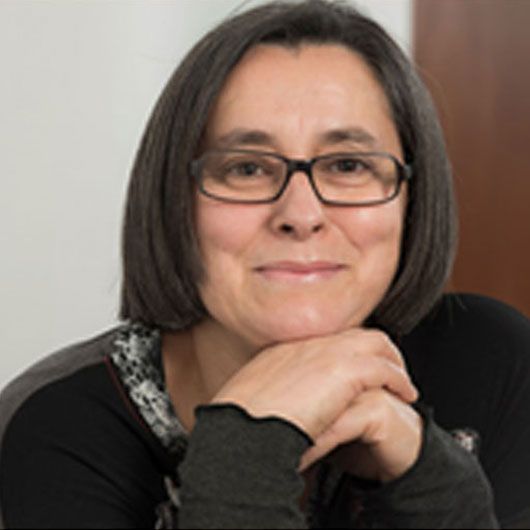
Cristina Marinhas
CEO
Quidgest presented to the Global Compact Network Portugal (GCNP) the Virvi, a software designed by the company for epidemiological global challenges such as Covid-19. In interview, Cristina Marinhas (CM), CEO of Quidgest, considers that SMEs should innovate and adapt to this new reality, reinforcing that "waiting for the rescue is not enough"
Quidgest
GCNP: What are the greatest challenges of this pandemic, for your organisation and for SMEs in general?
CM: The biggest challenge of the Covid-19 pandemic for any company in any sector will be the sharp drop in demand for goods and services and the subsequent stagnation of the economic activity. An economic crisis on a global scale, such as the one we are experiencing at the moment, will certainly have an impact on all types of companies, even those that, due to the advantage of being able to work 100% remotely, because they belong to a sector that allows it, as is the case of Quidgest, may not yet have felt the effects of this crisis.
GCNP: What is your organisation doing specifically to respond to the new market challenges imposed by the Covid-19 pandemic?
CM: Quidgest, as a technology company that has been investing in an automated software production tool for 30 years, was able to react very quickly to the pandemic. Within a week, the Quidgest team developed a hyper-agile emergency software designed for global epidemiological challenges like Covid-19, Virvi, which collects the most pressing data for the pandemic response, both at the monitoring and control level. It is a dynamic digital mirror of what needs to be monitored to support decision making and inform citizens.
The products that matter are not always the most sought after. In the case of Virvi, Quidgest did not respond to a market demand, but rather to a need. In fact, there wasn’t a globally available platform that gathered all the relevant information to fight the pandemic, given its specificity: importing countries, symptoms, incubation time, contagion process, surveillance cycle, home-based patients, risk groups, equipment, reagents, tests, protective materials, confinement. Until we find a vaccine or a cure, data is our best weapon to control Covid-19. Information saves lives.
The Quidgest team identified this need and gap in the market and created an innovative project, without equivalent worldwide, and that can greatly improve the response capacity of countries (Portugal and others) to the pandemic.
Thinking about the post-Covid-19, the Quidgest team also developed an advisory system for benefits requests. Highly valued by municipal associations, it is a system that advises and guides citizens and companies in obtaining all types of support, which are crucial to the recovery from the crisis.
These were the two innovative products that Quidgest developed focused on the special times we are living. Not only as a producer, but also as a consumer, Quidgest has made an effort to mitigate the negative economic impacts of Covid-19. In this sense, Quidgest maintains all contracts with the companies that provide services to us, even if they are not operating at 100%.
GCNP: What do you think should be done, particularly by SMEs, for the economy to recover from this crisis and build a more resilient society?
CM: SMEs are an essential part of the economy. A recent IFC study says that micro, small and medium enterprises employ two thirds of the world's population and represent half of global GDP. SMEs have a multiplying effect in the aggravation of economic crises and are also logically a key factor in their recovery.
In Europe, 90% of SMEs say they have already felt the economic impact of the Covid-19 pandemic. It is essential that governments take measures to protect these businesses. The key to overcoming the economic crisis resulting from the pandemic is SMEs. It is essential to give them the opportunity to survive. That said, it is also up to SMEs to innovate, to adapt as far as possible to this new reality and prepare for a world that will be very different from the one we have known until now. It is not enough to wait for the rescue.
Isto dito, cabe também às PME inovar para se adaptarem, na medida do possível, a esta nova realidade e prepararem-se para um mundo que vai ser muito diferente do que conhecemos até agora. Não basta esperar o resgate.
GCNP: Do you think the world will stay the same after this pandemic?
CM: The Covid-19 pandemic and subsequent economic crisis represents a future of many uncertainties for people, businesses, countries and the world. A crisis of this origin, magnitude, and scale is unprecedented and it is impossible to predict the consHowever, as has been repeated, the Covid-19 pandemic may also represent an opportunity for reflection. The various economic, social and political crises, as well as the climate crisis, of the last decades pre-Covid-19 make clear the flaws of current models. We can think of this pandemic as a reset button, an opportunity to rethink business models, life choices and move towards more sustainable models.




